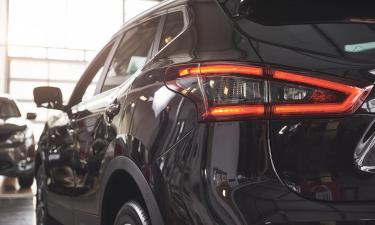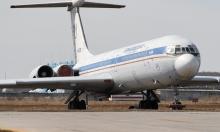Unpredictable Kim Jong-un launches underwater nukes
North Korean leader Kim Jong-un has come into the public eye this week.
The US and South Korea as well as a range of other states are concerned with a Pukgeukseong-1 missile launched by a new "Sinpo" class strategic submarine.
Even a few North Korean submarines equipped with underwater-launched ballistic missiles with nuclear warheads could pose a grave strategic challenge to the US, South Korea and Japan.
North Korea now has an estimated 10-20 small nuclear devices according to foreign intelligence estimates. Some of them are believed to be fitted to the North's medium-ranged Rodong missiles pointed at South Korea, Japan and the major US Pacific base on Guam.
Pyongyang has been trying to develop a miniaturized nuclear warhead to fit atop its longer-ranged Taepong and a new ICBM is under development. Recent tests of the extended-range missiles have been failures. But the North Koreans are quick learners and determined. However, they lag far behind in developing solid-fuel missiles, relying instead on cumbersome, vulnerable liquid-fueled missiles.
The US has the technological capability to intercept long-ranged ICBM fired from North Korea, and ample early warning time. However,it's hard to imagine why the North Korea would use its nuclear arms except in last-ditch self defense as the US would obliterate the North Korea with retaliatory salvos of nuclear strikes. US forces in South Korea, Japan (Okinawa), Guam and at sea have stocks of tactical nuclear weapons.
But a North Korean sub lurking off the US East Coast could launch against Washington and New York with only minutes of early warning. American anti-submarines systems, like the upgraded SOSUS underwater hydrophone system or towed hydrophones, would likely pick up the North Korean subs, which are believed to be noisy, but there's always a chance one or more could slip through, or launch out of range of underwater defenses.
South Korea has invested a great deal of money and effort into building what it calls a "kill chain" designed to attack North Korea's short and medium-ranged missiles before they can be launched or during their initial boost phase. This system is based on drones, aircraft, radars and satellite linked to a central command. North Korean submarines could outflank South Korea's strategic defense system.
But North Korea is not about to start a nuclear war of which it would be the principal victim. Pyongyang's nukes have always had the primary role of warding off a US-South Korean invasion - an operation that the two allies practice every fall, producing violent tantrums from Pyongyang.
Kim Jong-un knows Iraq and Libya would not have been invaded if they had possessed nuclear weapons.
The Chinese meanwhile are nervous about the unpredictable Kim and even Israel fears he will arm their Arab and Iranian enemies.
Also read: Kim Jong-il's son buries North Korea alive
Pravda.Ru
Subscribe to Pravda.Ru Telegram channel, Facebook, RSS!




